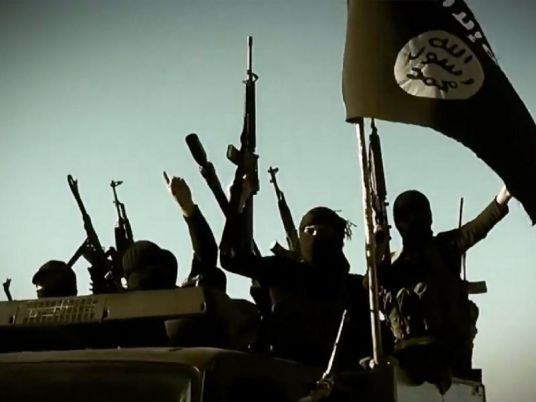
The US-led coalition of countries combating Islamic State in Iraq and Syria vowed Tuesday to "accelerate and intensify" their fight against the jihadist group, pledging more cash for reconstruction work and broader military action.
Speaking after talks in Rome, US Secretary of State John Kerry said 10,000 airstrikes in the year since the coalition was launched had yielded "undeniable progress" with IS forced to give up 40 percent of the territory it once controlled in Iraq and more than 30 percent in Syria.
Kerry said he was confident that promises made on Tuesday would lead to a "very substantial amount of money" being pledged at a donor conference for Syria in London on Thursday.
And he said coalition defense ministers would gather in Brussels next week to harmonize commitments to increased help with the bombing campaign, as well as in related areas such as training, medical supplies, providing ammunition and de-mining in areas relinquished by IS, which he said Norway had promised to provide forces for.
Kerry said the coalition had helped train 10,000 Iraqi and Peshmerga soldiers to fight IS as well as 1,000 Iraqi police.
IS had been forced to cut its fighters' salaries and reduce weapons purchases thanks to coalition moves to cut off its financing and access to oil.
"Unequivocally, together with our allies on the ground, we are pushing Daesh out of territories it once controlled," Kerry said.
"That is one reason we see their people going to Libya or some other places."
In a joint statement, the coalition ministers said: "We will intensify and accelerate the campaign against ISIL/Daesh in Iraq and Syria, act in concert to curb its global ambitions, and take every measure to ensure the protection of our citizens.
"We reaffirm our commitment to deliver a lasting defeat to this barbaric organization."
The statement expressed concern over "the growing influence" of IS in Libya but stopped short of threatening air strikes there.
It said only that the allies would "continue to monitor closely developments there, and stand ready to support" a proposed national unity government that is struggling to establish itself.
Italian Foreign Minister Paolo Gentiloni said the priority in Libya was to get a government of national unity endorsed by parliament to try and bring some stability to a country that descended into chaos after the Western-backed overthrow of former dictator Moamer Kadhafi in 2011.
Italy is ready for requests from a new Libyan government "on several fields, including security," Gentiloni said. "But we have to have a political process going on and a government of national accord having the endorsement of a parliament in the next few weeks."
Direct military intervention against IS fighters who control an area in and around the Libyan city of Sirte is not on the immediate agenda, French Foreign Minister Laurent Fabius told reporters, rubbishing reports that Paris was pushing for strikes.
"There is absolutely no question of military intervention in Libya," Fabius said. "There is pressure (for that) but that is not the position of the government."
Kerry reiterated that there were no plans to put US boots on the ground in Iraq, Syria or Libya but said President Barack Obama stood ready to do more along the lines of Washington's deployment of small numbers of special forces troops inside Syria.
Fabius said France also supported intensified strikes in Syria but suggested "more strategic" targeting was required while peace talks are under way in Switzerland.
"One cannot bomb in Syria and negotiate in Geneva," he said in an explicit allusion to Russia's air campaign in Syria.
Kerry said he expected Russia to respect a UN Security Council resolution calling on all parties to respect a ceasefire once the talks in Geneva were underway.




